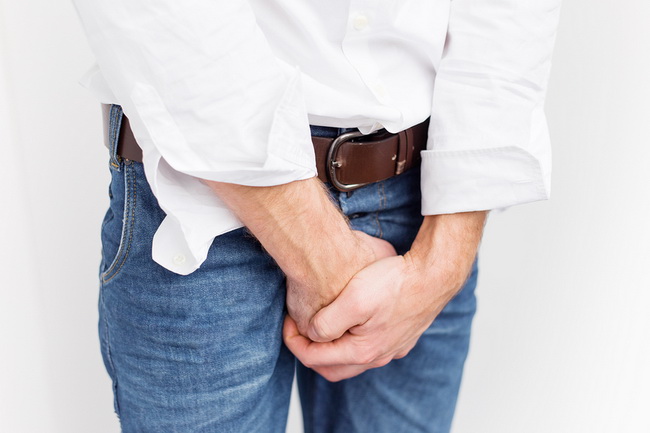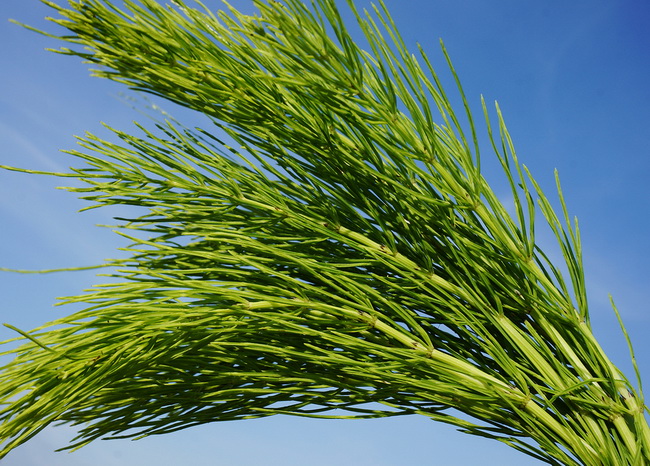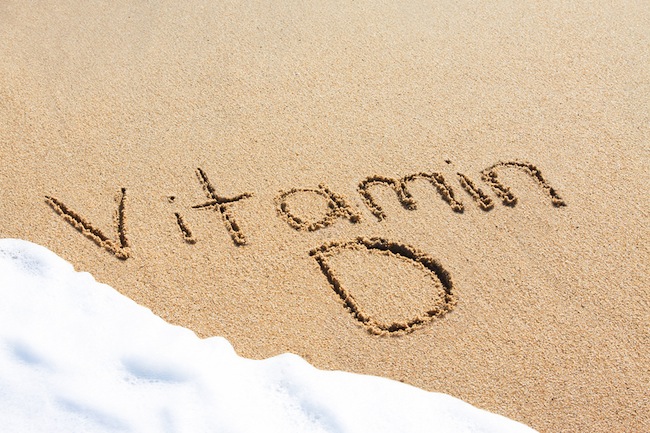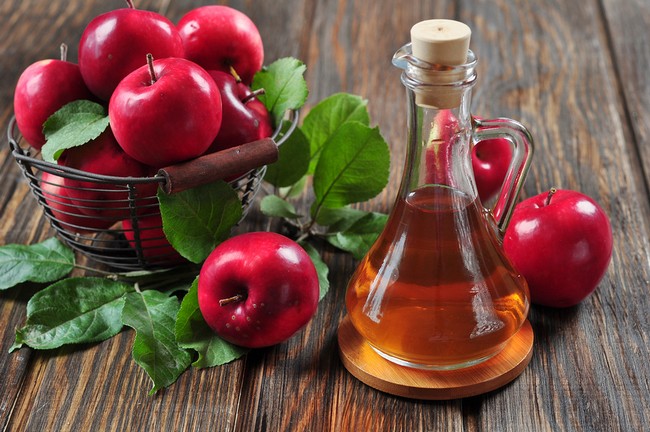- Make It Yourself Lavender Heart-Shaped Bath Bombs!
- 20 Things You Never Knew About “Down There”
- 12 Best Foods For Those Suffering From Arthritis Pain
- 12 Personal Hygiene Mistakes Almost Everyone Makes (Mom Never Told You About #4!)
- 15 Medicinal Plants And Herbs From The Cherokee People
- 12 Mind-Blowing Benefits Of Drinking Coconut Water During Pregnancy
- 12 Outstanding Winter Foods That Won’t Fatten You Up Like A Christmas Turkey
12 Natural Remedies to Beat Urinary Incontinence (# 6 is fantastic!)

Photo credit: bigstock.com
Urinary incontinence is something no one talks about, but it is actually an extremely common problem. The National Association for Continence states that this annoying, and sometimes downright debilitating, urological disorder affects more than 25 million Americans.
This is an extremely common problem for most women at one time or another in their lives, although it can affect men as well.
There are three main types of incontinence:
- Stress incontinence – This is perhaps the most common type. It occurs when simple physical activities such as laughing, sneezing, coughing, or jumping put pressure on the bladder, causing it to release urine involuntarily.
- Urge incontinence – This is perhaps the most annoying type of incontinence. This occurs when an overactive bladder gives a person an extremely intense feeling of needing to urinate. This feeling is so strong that it often stops people in their tracks, afraid to move! This often leads to the release of urine either immediately after the urge passes or when the urge hits.
- Overflow incontinence – This is the inability to empty the bladder completely, which can lead to frequent and in some difficult cases even a constant dribbling of urine. This is the most common type of incontinence for men.
Numerous factors including aging, an enlarged prostate, menopause, nerve damage, urinary stones, and chronic constipation can cause urinary incontinence. Weakened pelvic muscles due to childbirth or surgery, obesity, even certain medications can overstimulate the bladder.
To really get rid of this problem, the person needs to find out the underlying causes. Be certain that you check with your doctor to be sure that you don’t have a more severe problem such as bladder cancer.
However, for most people, simply dietary changes, herbal treatments, and other natural means can help end urinary incontinence. Keep reading and find out the best 12 natural ways you can beat urinary incontinence without drugs and without surgery.
Continue to Page 2

Photo credit: bigstock.com
1. Horsetail
This herb is naturally astringent and can heal tissue that has been traumatized. It is also a mild diuretic, which can help your bladder to empty naturally. Drinking horsetail tea can help to strengthen connective tissue and restore your urinary system. Read more about horsetail benefits.
2. Kegel Exercises
If your problem with urinary incontinence is in the early stages, exercising the pelvic muscles is a great way to help treat urinary incontinence. These exercises, called kegel exercises, reduce urine leakage through improving overall bladder control. Kegel exercises work not only for women, but for men as well, and are really great for those with stress or urge incontinence.
If you aren’t sure which pelvic muscles you should be working, next time you go to urinate, stop your stream in the middle. Then release and let it start again. Those are the muscles you should be working.
Now, to do these exercises, simply tighten your pelvic muscles, hold for a count of 8, and then release. If you can’t hold it for the entire count of 8, hold it for as long as you can. Do 8 to 10 reps of this exercise, 3 times each day.
If you aren’t sure about what you are doing, a physical therapist can help you to do these techniques properly and can offer advice that suits your specific needs.
3. Marshmallow Root
This herb is well known for its soothing compounds. Taken as a cold infusion, it can work wonders for your urinary system. To make a cold infusion, soak the herb overnight in cold water. Strain and drink one cup twice each day for best results.
Continue to Page 3

Photo credit: bigstock.com
4. Acupuncture
Acupuncture can help reduce incontinence by strengthening the urinary system as well as correcting the imbalance of the kidneys, according to Chinese medicine. Using acupuncture can help you reduce urinary urgency and increase your ability to hold your urine. Studies have shown that this ancient means of therapy is beneficial for most people for the treatment of urinary incontinence. Be sure to get treatment from a qualified acupuncturist.
5. Magnesium
If at night you experience leg cramps, which is a sign of magnesium deficiency, this might be the answer for you. Magnesium is vital for the relaxation of muscles, which means that being certain that you have sufficient levels of magnesium in your body can lessen bladder muscle spasms and help the bladder to get empty completely.
In 1998 a study was published in the British Journal of Obstetrics and Gynecology. The article revealed the founding that women who had urge incontinence had fewer episodes of incontinence after taking regular supplements of magnesium. Start by taking 350 mg of magnesium hydroxide supplements two times per day. Alternately, run the bath, add some Epson salt to it, and get a 15 to 20 minutes soak in it at a time three to four times each week.
6. Meditation
You might not think that this method would work, but according to a 2009 study from Loyola Health System, scientists there found that cognitive therapy involving guided imagery exercises and deep breathing techniques helped to retrain the brain to control the bladder and reduces the number of urge incontinence episodes from 38 each week to 12.
Try meditation, relaxation, and visualization exercises for a few weeks and see if you notice an improvement in your symptoms. Nothing feels as good as using your own brain to fix your body!
Continue to Page 4

Photo credit: bigstock.com
7. Vitamin D
In a study published in Obstetrics and Gynecology in 2010, women who had higher levels of vitamin D in their blood had a lower risk of developing urinary incontinence problems. The best way to get vitamin D is to soak up some natural sunlight for 10 to 20 minutes each day. If you can get early morning sunlight, so much the better. Also, try eating more foods that are rich in vitamin D, such as eggs, oysters, fish, cheese, and other dairy products. If you live in an area that gets very little sunlight or if there are other problems that prevent you from getting natural sun, you can take vitamin D supplements.
8. Cleavers
This is a traditional herbal tonic that is designed to treat urinary problems. This herb often recommended to treat overactive bladder and cystitis. Cleavers also protects you from bladder irritation as it coats and soothes the lining of the bladder. Make some cleavers tea by steeping two teaspoons of this herb in one cup of hot water for 10 to 15 minutes, strain, and drink 3 cups each day.
9. Yoga
Performing yoga can help to tighten up the muscles that control the urethral sphincter and provide similar benefits to performing Kegel exercises. Yoga is also good for relieving feelings of depression and anxiety.
The journal Female Pelvic Medicine and Reconstructive Surgery found in a 2014 study that women who practiced yoga during the 6 week study program helped them to control their urinary incontinence. All women in this study stated that they had an overall 70 percent reduction in episodes of urine leakage.
Continue to Page 5

Photo credit: bigstock.com
10. Apple Cider Vinegar
Not only is apple cider vinegar great for fighting bladder infections, it is also an excellent health tonic. Studies have shown that drinking apple cider vinegar can help you to lose weight, also, and since excess weight is a contributing factor to urinary incontinence, this is good news. Add 1 teaspoon of raw, unfiltered apple cider vinegar to a glass of water and drink twice each day. You can add a bit of honey to help make it more palatable.
11. Gosha-Jinki-Gan
A traditional Chinese herb that you most likely have never heard of! This is actually a combination of herbs that are used for those with urinary incontinence. Two small studies out of Japan have shown that this supplement improved urinary frequency, feelings of urgency, and nighttime urination for those suffering from an overactive bladder. Ask your doctor before consuming this herbal supplement for the proper dosage for your condition.
SEE ALSO: 13 Exciting Reasons Why You Should Eat More of this One Red Fruit
12. Buchu
This herb is a terrific tonic for the urinary tract and can actually help improve its overall health. Short-leaf buchu (agathosma betulina) is beneficial for incontinence caused by bladder infections. This beneficial herb also has antibacterial, anti-inflammatory, and diuretic compounds. It also strengthens the tissues of the urinary tract and eases systemic irritation.
If you have pain or swelling in the urinary tract, do not use this herb.
Additional Tips:
- Set a schedule of urinating every 2 hours, even if you don’t feel as if you need to go.
- If you are talking prescription medications, ask your doctor if these are contributing to your problem.
- Wearing a tampon while doing things such as jogging or dancing will put a bit of pressure on your urethra and help to slow or stop any leakage.
- Avoid drinking too much or too little. Drinking too little causes dehydration and can lead to urinary tract infections but drinking too much can lead to more leakage.
- If you are overweight, take the necessary steps towards losing weight gradually. Extra pounds put extra pressure on your bladder.
Always consult your physician before consuming any herbal product, especially if you have any type of medical problem or if you are taking any prescription medication to avoid any drug interaction.
References:
































